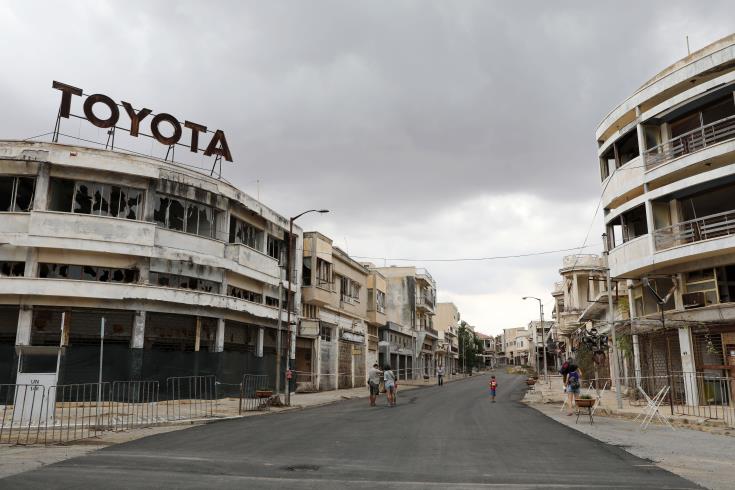Turkish Cypriot leader Ersin Tatar said on Friday that in the coming months they would be opening a number of ‘municipal’ and ‘government’ buildings in Varosha.
Speaking ahead of celebrations that will be held for the second year of reopening of the fenced-off ghost town in Famagusta, Tatar said that it is ‘no longer a ghost town’ and that it attracts many tourists from Turkey and other countries.
Tatar told a Turkish TV Channel that the ‘government’ has gained a lot from this opening and the prospects of Varosha as a tourist destination are great, and that the north could benefit financially.
“The ‘TRNC’ is a reality,” he told the news channel. The recognition of the breakaway regime is being discussed, he added.
“More consultation is needed on recognition. We tell the international community at every opportunity that the path we are on is the right one and that the Turkish Cypriot people deserve it after the genocides and persecutions they went through and never stopped resisting. We will continue our way in cooperation with Turkey,” he said.
He trashed the prospect of bicommunal, bizonal federation, saying that the Turkish Cypriot side would ‘not accept’ discussing a federation with Greek Cypriot partner, or the removal of Turkish troops from the north, or getting rid of Ankara’s guarantees.
Earlier in the week, Tatar announced that they would give the first visitors to Varosha on Saturday a gift, and that there would be a concert.
In October 2020, the Turkish defence ministry released photos showing small groups of people wandering along roads surrounded by deserted buildings and near Varosha’s sandy beach, including one woman with a large Turkish flag draped on her back.
The Varosha violations have already been reported to the UN Security Council and the UN Secretary-General, to the heads of EU Institutions, the EU leaders and to all international fora in which the Republic of Cyprus participates.
The Security Council later called for a reversal of the Varosha decision by Turkey and the Turkish Cypriot side to open the coastline in the fenced-off area and to adhere to UN resolutions.







Click here to change your cookie preferences